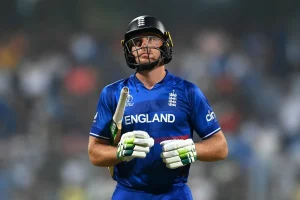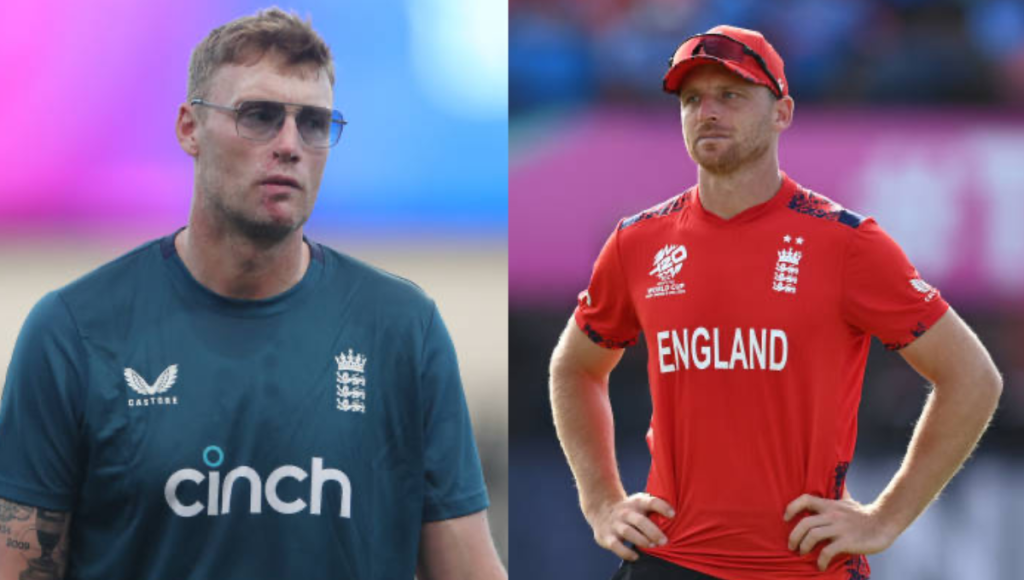The cricketing world was abuzz with the news of a fallout between Andrew Flintoff, a legendary figure in English cricket, and Jos Buttler, the current white-ball captain of England. This unexpected rift came to light following Flintoff’s decision to step away from his coaching role with the England cricket team, a move that was reportedly influenced by his inability to gel with Buttler, particularly during the T20 World Cup in June 2024.
The Background: Andrew Flintoff, known for his all-round prowess and his role in England’s 2005 Ashes victory, had transitioned into a coaching role, bringing his experience and charisma to the England setup. However, his stint was marked by what reports describe as a lack of cohesion with Jos Buttler, whose captaincy style and expectations might not have aligned with Flintoff’s approach.

The Fallout: The specifics of their professional misalignment are not entirely public, but posts on X and various reports suggest that Flintoff’s working relationship with Buttler was not as harmonious as hoped. This was particularly evident during the T20 World Cup, where strategic differences or perhaps communication issues might have surfaced. Flintoff’s departure from the England team’s coaching staff for the upcoming white-ball series against Australia was a clear indication of these unresolved tensions.
Public and Team Sentiment: The cricket community’s reaction on platforms like X was mixed, with some expressing shock over how such a legendary figure like Flintoff could not find a working rhythm with Buttler. There was speculation on whether this was due to personality clashes, strategic differences, or simply an inability to adapt to each other’s cricketing philosophies. Fans and analysts alike debated the implications of this fallout on England’s cricketing future, especially with Buttler continuing as captain amidst changes in the coaching staff.
Future Implications: With Flintoff moving to coach the Northern Superchargers in the Hundred competition, it’s clear he’s not stepping away from cricket but perhaps seeking a role where his methods and personality might better fit. For Buttler, this episode might serve as a learning curve in leadership, where managing team dynamics, especially with figures of Flintoff’s stature, requires a delicate balance of authority and respect.
The fallout between Flintoff and Buttler serves as a reminder of the complexities within team sports, where personal chemistry and professional expectations must align for success. While Flintoff’s departure might be seen as a loss for England’s immediate coaching setup, it also opens up discussions on leadership, team cohesion, and the evolving roles of cricketing legends in modern cricket. For now, England’s cricket fans are left to ponder how this dynamic will shape the team’s future, with Buttler at the helm and Flintoff exploring new avenues in cricket coaching.

